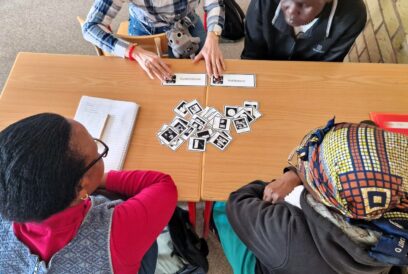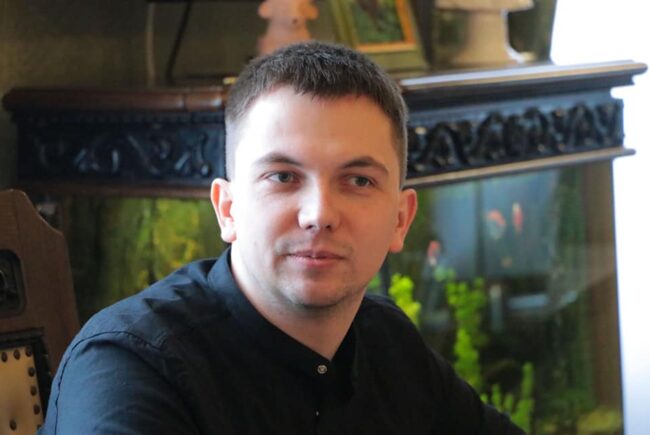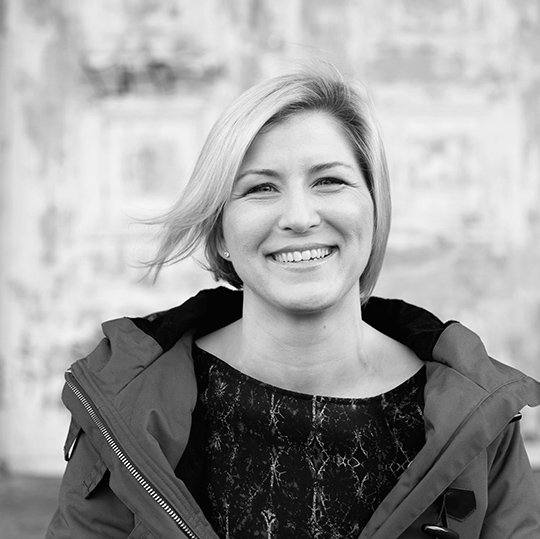
- Executive Director of the Ukrainian Adult Education Association until the beginning of 2024
- Chairman of the Public Council at the Ministry of Education and Science of Ukraine
- A human rights activist and lawyer

“As the war shows, education is a good tool for countering propaganda. Education should promote the values of peace, democracy, love and mutual respect,” says Mykyta Andreev. Photo: Mykyta Andreev.
“As the war shows, education is a good tool for countering propaganda. Education should promote the values of peace, democracy, love and mutual respect,” says Mykyta Andreev. Photo: Mykyta Andreev.
A current draft law on changing adult education is key to societal renewal in Ukraine – now and after the war – says Mykyta Andreev, the former Executive Director of the Ukrainian Adult Education Association.
When a country and its people are focused on daily survival during war, it may seem insensitive to inquire about educational planning for tomorrow.
Yet in Ukraine, societal renewal after the war is on the agenda at many levels.
“Everyone understands the importance of adult education during the war because almost the entire population is facing the need to urgently acquire new knowledge and skills,” says Mykyta Andreev, Executive Director of the Ukrainian Adult Education Association (UAEA) until the beginning of 2024. He was interviewed in late autumn 2023.
“We are currently working on a draft law to change adult education in Ukraine,” says Andreev.
The draft law sets out a new framework for adult education, its organising principles and the rights and responsibilities of various stakeholders while introducing several significant changes to current legislation.
Everyone understands the importance of adult education during the war, because almost all are facing the need to urgently acquire new skills.
Changes include recognising non-formal education within the formal education system and offering the opportunity to obtain full educational qualifications based on the results of non-formal education. Previously, only professional or partial qualifications could be obtained in this way.
The draft law proposes that education providers be able to independently define the form – courses, training workshops, seminars, or internships, for example – and content of informal education based on professional standards and the needs of society and the economy.
“According to our regulations, any law is adopted in two stages. It’s interesting to note that the draft law was registered a few days before the Russian invasion and was adopted at the first stage already during the war at the beginning of 2023,” says Andreev, who is a human rights activist and lawyer. Andreev is also the chairman of the Public Council at the Ministry of Education and Science of Ukraine.
One of the goals of the draft law is to create the foundation for a transparent and free informal education market, a step in a new direction.
Another special feature of draft law is to allow local authorities to establish adult education centres, which some communities have already done, and provide out-of-school education for over 14-year-olds. The aim is to provide education that’s accessible and oriented to all groups of the population.
“I think that Ukraine is and will be one of the leading countries in the fields of the defence industry, IT sector, and digitisation of public services and agricultural sector. Therefore, if we talk about the professional segment of adult education, these directions are and will be popular in the future,” says Andreev.
An equally important area of focus after the war will also be civic education for the adult population.
“Topics such as countering propaganda and disinformation, civic participation and democratisation, political education and the electoral process, financial and legal literacy will be at the top of the list. When the war ends, there will naturally be a need to increase the number of builders, architects, repairmen and engineers, so professional education of adults will be aimed at this,” says Andreev.
The current challenge is to cater to urgent needs during wartime.
“Now, much attention in education is paid to such things as First Aid and pre-medical training, preservation of mental health, basic military training, and professional retraining courses,” says Andreev. “And as before the war, language courses and computer and IT courses remain popular.”
Previously, more emphasis was placed on training aimed at individual self-realisation, whereas now more attention is being paid to security needs, health needs and income generation through retraining.
“Preference is now usually given to short-term training courses because we all need results here and now, and we cannot be sure what will happen in a year or more,” says Andreev. “Right now, those needs range from the skill of conducting a shooting battle to surviving in conditions with lack of light, and the ability to stay psychologically stable in conditions of daily shelling.”
Many people need to change their professional qualifications because they have lost their job and income and are looking for a new one.
When it comes to the bigger picture, Andreev says, “as the war shows, education is a good tool for countering propaganda. Education should promote the values of peace, democracy, love and mutual respect.”
